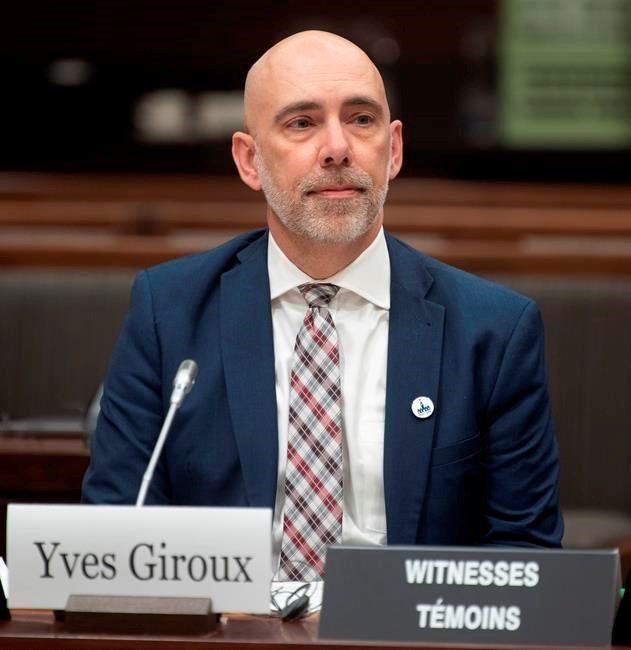OTTAWA — Providing almost all Canadians with a basic income for six months beginning this fall could cost about $98 billion, the parliamentary budget officer said in a report on the eve of a preview of how COVID-19 will shape government spending until next spring.
The figure is the upper range of the scenarios the budget watchdog was asked to research as part of a report released Tuesday morning as policy-makers consider how to shape emergency supports set to expire in the fall.
Planned federal spending to date on pandemic-related aid now tops about $174 billion, in a range of programs meant to provide a financial floor for individuals and businesses.
The idea of giving a government-guaranteed basic income to Canadians has gained steam as millions have watched their jobs or earnings evaporate in the COVID-19 pandemic.
Finance Minister Bill Morneau and other senior cabinet ministers have repeatedly been asked by senators and MPs about the concept. Advocates argue that it would be an expansion of the $80-billion Canada Emergency Response Benefit for workers who saw their incomes crash.
The CERB and a $45-billion wage-subsidy program are set to expire in October.
Providing six months of a basic income starting that month could cost between $47.5 billion and $98.1 billion, depending on how much of the benefit is clawed back from people whose other incomes increase.
Budget officer Yves Giroux's report says the average benefit to Canadians aged 18 to 64 would range between $4,500 and $4,800, with the number of recipients depending on the phase-out rate.
Sen. Yuen Pau Woo, who asked for the costing, said a basic-income program could fill in the gaps in Canada's social safety nets, a patchwork largely run by provinces, that have been exposed by the pandemic.
"It's a huge undertaking to launch a basic income for the whole country on a permanent basis. The costs are extremely high and the political resistance is likely to be fierce, but we are in a period where it is likely we will have to spend large sums of money on income support going into the balance of 2020 and into 2021," Woo said in a telephone interview.
"The question to my mind is how we spend it, and in what form."
A basic income means different things to different people, but it is usually viewed as a no-strings-attached benefit that governments provide to citizens instead of various targeted social benefits.
Also known as a guaranteed minimum income, it can be delivered as a universal payment, or as a means-tested benefit that declines as a recipient's other income rises.
Giroux's report says the government could repeal $15 billion in tax measures to offset the overall cost of a basic-income program, which Woo added would likely have to wrap in existing measures to avoid duplication.
The overall cost of the program might be higher than the budget office estimates. The PBO's estimates rely on some Statistics Canada income data that doesn't include people living in the northern territories or in First Nations, or some military members.
Nor can the figures simply be doubled to determine a full year's cost because that might overstate the financial impact. The economy appears to be bouncing back slowly from a bottoming-out in April, and the cost of the program would depend on how many employees are rehired or find new jobs.
The Canadian Federation of Independent Business, which represents small businesses nationwide, said Tuesday that about one-third of members responding to a survey reported being back at full staffing levels, but suggested many believe it will take six months to get back to normal profitability.
Statistics Canada is to release June's jobs report on Friday.
Projections released Tuesday by the Organisation for Economic Co-operation and Development estimate Canada's unemployment rate at 11 per cent for the second quarter of the year.
The 37-member international body predicted the national unemployment rate would decline to 7.7 per cent by the end of the year, or to 8.4 per cent should a second wave of the novel coronavirus force renewed lockdowns.
NDP finance critic Peter Julian said Tuesday that the uncertain economic path ahead requires the Liberals to say how the government plans to reshape emergency aid in Wednesday's fiscal update.
He said a more universal benefit, which the NDP has pushed, would have helped more people and cost less had the Liberals used it from the start.
"It makes more sense to make sure that everybody who needs the benefit can actually get it than the government's approach," Julian said.
The Liberals have said the update on Wednesday will provide an economic outlook, an accounting of spending to date and projections for the remainder of the fiscal year, including the expected deficit. The PBO and others estimate that to be at least $250 billion.
This report by The Canadian Press was first published July 7, 2020.
Jordan Press, The Canadian Press



